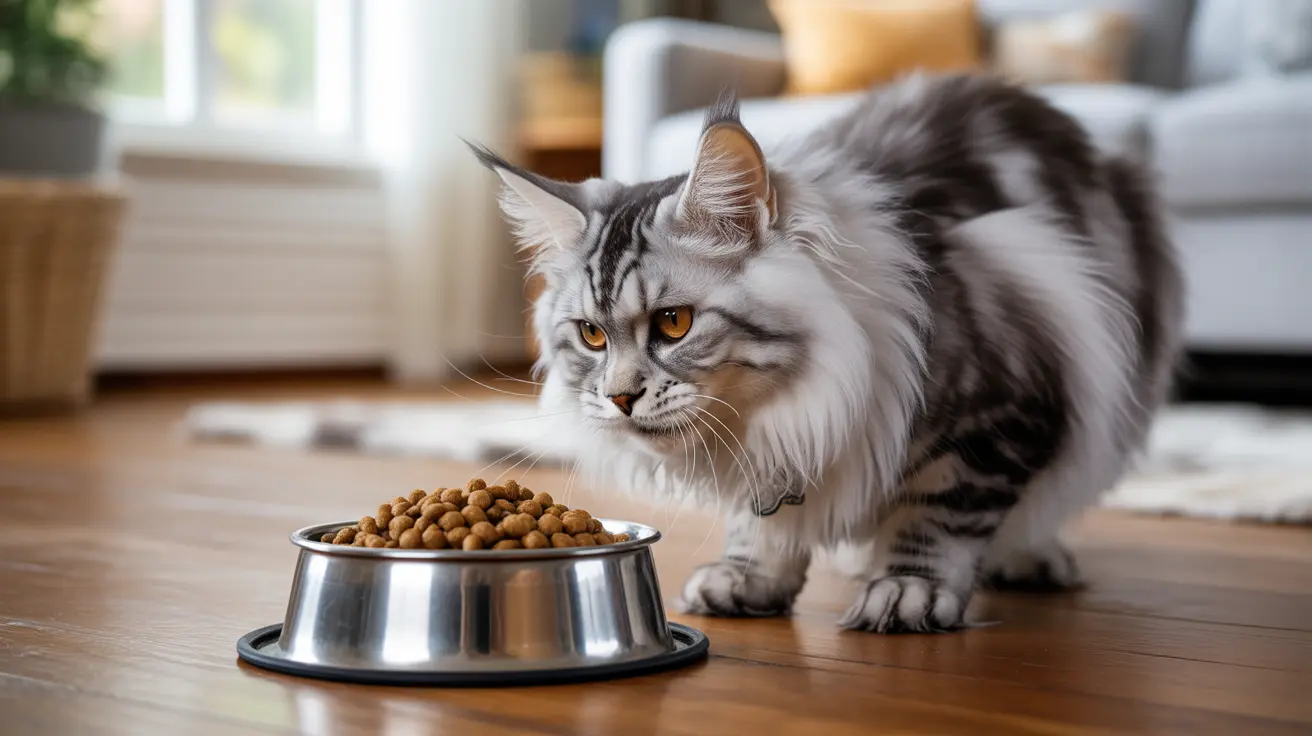When it comes to feline nutrition, understanding easily digestible protein for cats is crucial for every pet owner. As obligate carnivores, cats require specific types of protein to maintain optimal health, and not all protein sources are created equal. This comprehensive guide will explore why protein digestibility matters and how to choose the best protein sources for your feline friend.
Whether you have a kitten, adult cat, or senior pet, ensuring they receive high-quality, digestible protein is essential for their overall well-being and longevity. Let's dive into everything you need to know about protein digestibility in cat nutrition.
Understanding Protein Digestibility in Cats
Cats have evolved as strict carnivores, meaning their digestive systems are specifically designed to process animal-based proteins. Unlike humans or dogs, cats require a higher percentage of protein in their diet - approximately 26% compared to 12% for dogs and 8% for humans.
Protein digestibility refers to how efficiently your cat's body can break down and utilize the protein in their food. The more digestible the protein, the more nutrients your cat can absorb and use for essential bodily functions.
Best Sources of Digestible Protein for Cats
Animal-Based Proteins
The most easily digestible proteins for cats come from animal sources, including:
- Chicken and turkey
- Fish (such as salmon and whitefish)
- Egg whites
- Organ meats (liver, heart, kidney)
- Duck and lamb
Quality Matters
High-quality muscle meats and organ meats typically offer superior digestibility compared to meat by-products or rendered meals. Fresh, whole-food sources generally provide better nutrient absorption and are easier for cats to digest.
The Benefits of Highly Digestible Protein
Feeding your cat easily digestible protein sources offers numerous benefits:
- Better nutrient absorption
- Improved muscle maintenance
- Enhanced immune system function
- Healthier skin and coat
- Reduced digestive issues
- Less waste production
Special Dietary Considerations
Some cats may require special attention to protein digestibility, including:
- Senior cats with declining digestive efficiency
- Cats with sensitive stomachs or food allergies
- Cats recovering from illness or surgery
- Kittens in their growth phase
Choosing the Right Cat Food
When selecting cat food, look for:
- Named animal proteins as the first ingredients
- Multiple high-quality protein sources
- Limited use of plant-based proteins
- Clear ingredient labels without generic "meat" terms
- Foods specifically formulated for digestibility
Frequently Asked Questions
What are the best sources of easily digestible protein for cats?
The most digestible protein sources for cats include chicken, turkey, fish, egg whites, and organ meats. These animal-based proteins closely match cats' natural dietary needs and are easily processed by their digestive systems.
Why is animal-based protein better than plant-based protein for cats?
Animal proteins contain all essential amino acids cats need, including taurine, which they cannot synthesize themselves. Plant proteins often lack these crucial nutrients and are generally less digestible for cats' carnivorous digestive systems.
How can I tell if a cat food is highly digestible and good for my cat?
Look for foods with named animal proteins as the first ingredients, avoid generic "meat meals" or by-products, and watch your cat's response to the food - good digestion typically results in firm stools, healthy coat, and maintained energy levels.
What is hydrolyzed protein cat food and how does it help cats with sensitive stomachs?
Hydrolyzed protein cat food contains proteins that have been broken down into smaller pieces, making them easier to digest and less likely to trigger allergic reactions in sensitive cats.
Can cats with kidney disease or digestive issues benefit from easily digestible protein diets?
Yes, cats with kidney disease or digestive issues often benefit from highly digestible protein sources, as they put less strain on the digestive system and kidneys while ensuring optimal nutrient absorption. However, always consult with a veterinarian for specific dietary recommendations.
Remember to always introduce new foods gradually and consult with your veterinarian before making significant changes to your cat's diet, especially if they have specific health concerns or dietary requirements.






